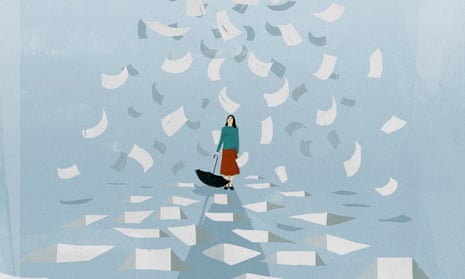I don’t feel desperate to be informed about everything that happens in the world. As a girl, I merely glanced at the newspaper headlines and occasionally watched the TV news.
But a growing interest in politics, which erupted when I was around 20, inspired me to amass information. It seemed to me that until then I’d lived in a state of distraction, and I was afraid I’d go through life without even being aware of the disasters, the horrors around me. I feared I would become a superficial person, unconsciously complicit. So I forced myself to read the newspapers, and then since that didn’t seem sufficient, moved on to books of contemporary history, sociology, philosophy. There was a period when, against my nature, I even stopped reading novels: it seemed like time stolen from the need to live in my own era with eyes wide open.
But I didn’t make great progress: I always felt as if I’d entered a theatre where the movie had already started and I was struggling to get oriented. Where was the good, where was the evil? Who was the just, who the unjust? Who was interpreting facts, and who twisting them to create propaganda?
This struggle isn’t over. In fact, it seems to me more difficult today than in the past to try to understand how the world is going, in order not to have to discover, in the end, that in our distraction we have been complicit with the dregs of the human race. The uninterrupted rain of news doesn’t help, books don’t help, the constantly new sociological terms that brilliantly simplify reality don’t help. Rather, I have the impression that today’s network of information, in both its print and digital manifestations, forces citizens into a sort of chaos, a condition in which the more informed you are, the more confused you are. For me, the problem is not, therefore, to stay well informed but to track within the mass of pointlessly amplified news that which will help me to distinguish, over time, the true and the false, the best and the worst: this is an extremely difficult task.
I’ve always had great admiration for those who, in the chaos that generally characterises the present, sensed from the start the enormous dangers of Nazi-fascism and courageously denounced it. But do we still have the capacity to be as far-seeing? Do the conditions exist today for the long view?
Sometimes I think I understand why we women increasingly read novels. Novels, when they work, use lies to tell the truth. The information marketplace, battling for an audience, tends, more and more, to transform intolerable truths into novelistic, riveting, enjoyable lies.
